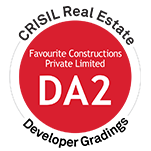Approvals and Certifications of the Builder to be verified before Buying a Villa/Apartment
Post by : favouritehomes
Investments in property take a lot of time and effort, unlike investments in the stock market. Exiting from property investments also takes a lot of time as compared to selling off stocks, so do take your time to think carefully before buying into the property.
That having been said, we as Indians are, duty-bound to buy a home, whether a villa or an apartment, at least once in our lifetime as per the dictates of our culture and human nature. Just like the birds, we also need a nest to call our own. But buying into a villa or apartment can be a tricky process as not all builders have above-board work ethics. This is why when you are buying a property, make sure it’s from a verified builder who has been around for some time and has a reputation to match – just like us at Favorite Homes!
Once you have zeroed in on the property of your choice, you will have to roll up your sleeves and go vigilant! This is the point where many people get into trouble for not having gone through the fine print on the builder’s papers. You will need to check through all the approvals and licenses obtained by the builder prior to starting construction work. Some of these include the approved layout plan, environment clearance, as well as commencement certificate.
You also need to find out the status of the land – whether the builder owns the land or just has building rights over it. Also, check the land-use zone – whether the construction site is in a government-approved residential area or in an industrial or commercial area. Ask for the latest tax payment receipts on the property as well as the building before buying it.
The title deeds, as well as the purchase agreements, are the two documents that need the maximum attention, where everything, especially the tiny writing needs careful scrutiny. Instead of being penny-wise and pound-foolish, it would be better to hire the services of a property lawyer to go through these paper-works to ensure that there are no hidden clauses that could put your hard-earned money into jeopardy. And do note that, No Objection Certificates do not represent legal approvals.
Be vigilant that the property isn’t pledged for some bank loan, in which case you will need a Release Certificate stating that the loan has been repaid. Ask for an Encumbrance certificate too to ensure the land is free from any litigation. You will also need to ensure that the entire layout has the approval of the local development cooperation body.
Aside from the legalities, ask for the total cost of your venture. This should include the basic cost plus other charges like internal/external development fee, parking/club fee, preferential location fee, and service tax. All these elevate the final cost of the property.
After finalizing with all the documents and approvals, check with the banks financing the construction project as they are more likely to offer you lower loan rates. And finally, verify your builderâ’s credentials. Visit their completed and ongoing projects for an idea of what you are getting into. All the best!
All the best!
 +91-98959 94000
+91-98959 94000 +971501148100
+971501148100












